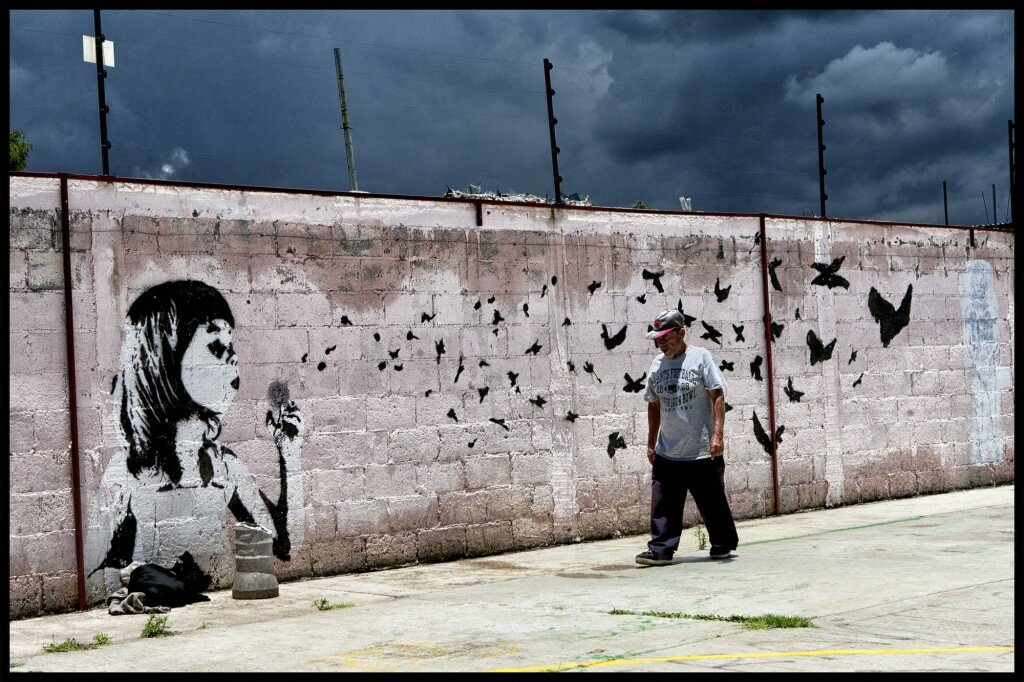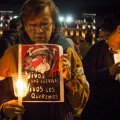David Agren / Fox news latino / diario19.com
The protests in Mexico City and other large centers around the country Thursday night once again demonstrated the deep discontent over crimes committed against common citizens and the similarly profound frustration with the response of the Enrique Peña Nieto administration.
“This president has been a fiasco,” said protester and political science student Ladislao Nava, one of the thousands who streamed through the capital on a day normally reserved for remembering the Revolution of 1910.
Once in the Zócalo square, a symbolically important place for both protest movements angling for attention and politicians attempting to project power to the population, the protesters burned an effigy of President Peña Nieto.
“People will protest until there’s a proper response,” Nava added.
Over the last few months the president has emphasized economic matters and mostly stayed silent on security issues since coming to power nearly two years ago.
Meanwhile, the 43 students gone missing on Sept. 26 in Iguala have come to represent the worst fears of parents – from all social strata – who worry about the fates of their own children and the future of the country. Rather than a mere menace, in some states organized crime appears to be acting as a partner in power.
“I can’t remember an event that has united almost all of Mexican society,” said Ilán Semo, political historian at the Iberoamerican University.
He later cited the 1938 oil industry expropriation and 1985 Mexico City earthquakes as possible precedents.
“Everyone feels threatened and what’s clear is that the threat doesn’t come from small groups of narcotics traffickers, rather the state structure itself,” Semo said. “It’s served to reveal what millions of parents in the country fear might happen to their children.”
Federal officials say the Iguala students were attacked by cops operating in cahoots with organized crime and acting on the instructions of a mayor and his wife, who were worried the teacher trainees would protest a political event. Suspects later confessed to burning the bodies in a garbage dump and tossing the ashes in a nearby river, according to the attorney general’s office – an explanation the students’ parents and classmates refuse to accept.
Peña Nieto came under fire for taking as many as 11 days to make his first public statements on the disappearance, waiting several weeks to meet with the grieving families and then departing for an Asian trip as the country was still up in arms.
Details from investigative journalists working for Aristegui Noticias that First Lady Angelica Rivera purchased a mansion now valued at 86 million, using credit provided by a prominent government contractor, stoked outrage even more. (Rivera said Tuesday she would sell the property in order to quell the controversy, even though she had “nothing to hide.”)
Semo compared the president’s crisis management challenges to that of the then-government in 1985, when a massive earthquake rocked Mexico City and ordinary people pitched in to rescue victims and help the homeless as federal officials fumbled for a response.
This time, Mexicans are especially irritated at Peña Nieto’s signals of displeasure with the demonstrations, which started escalating last weekend when protesters burned down the doors to the National Palace.
“In a democratic state like ours, any violence is unacceptable, regardless of its origin,” the president said at a military event on Thursday.
The protests, he said two days earlier, “appear to respond to an interest of generating instability, of generating social disorder and above all attacking the project for the nation we have been building.”
Bishop Raúl Vera López, whose diocese in the northern state of Coahuila works closely with families of missing persons, said the president’s comments seem to reflect that Mexico is “already a dictatorship.”
Protesters also pounced on the comments, carrying signs calling themselves “destabilizers.” Others said the same in different forums.
“I publically confess: I’m a destabilizer of the country,” blogger Antonio Martínez wrote on the Animal Politico website. “I’m not because I am commanded by dark forces or puppet masters, rather because I’m outraged.”
Political science professor Aldo Muñoz Armenta said protests cause discomfort for many Mexican politicians, who make efforts to diminish, discredit or infiltrate the marches so that they end up receiving negative press coverage.
“The tradition for Mexican governments is to consider social protests as criminal acts,” said Muñoz, who teaches at the Autonomous University of Mexico State.
Questions remain if the protests will persist – an uncommon occurrence in Mexico, where social movements often splinter.
“The government always bets that people will forget,” student Andrea Bravo said at the protests. “But I believe that this is going to be the beginning of something.”
David Agren is a freelance reporter living in Mexico City.









